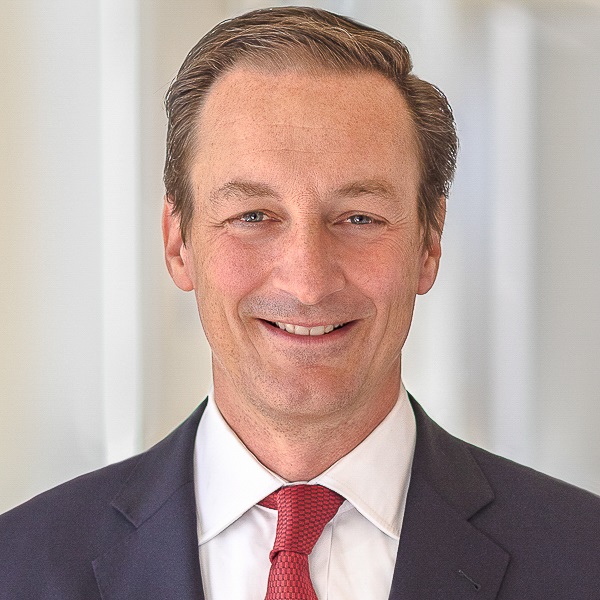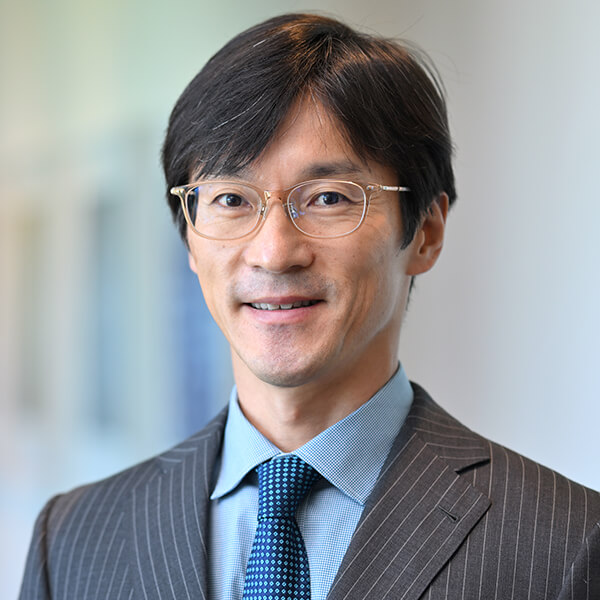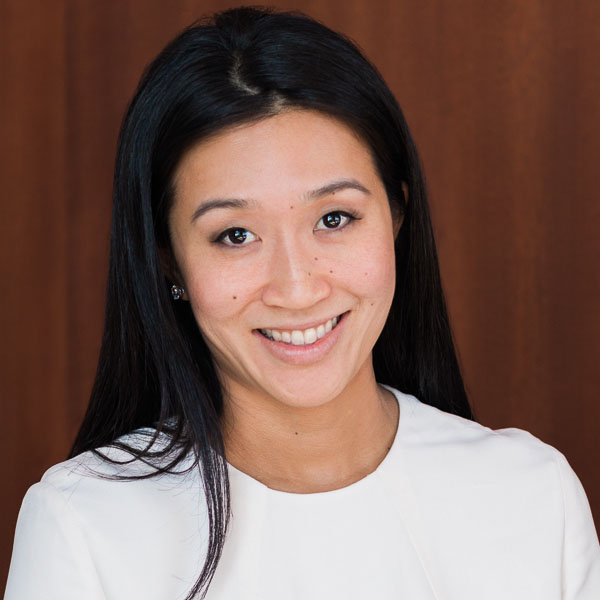U.S. Equities
Last year amounted to a perfect storm that investors would have gladly done without. The lingering effects of the pandemic and the start of a European land war stoked inflation, jolted central banks into action and drove the stock market to its worst showing since the 2008 global financial crisis.
The challenges — including the specter of a potential recession — haven’t magically vanished with a turn of the calendar. But opportunities are emerging as stock prices become more attractive and new leadership forms across sectors.
To shed light on the economic and market outlook, we spoke to Capital Group economist Darrell Spence, Capital Group Private Client Services principal investment officer Will Robbins and Capital Group equity portfolio managers Julie Wang Chou and Kohei Higashi.
Where is the economy today, and where might it go as the new year progresses?
Darrell Spence: We’re in the middle of a battle with inflation. It has transitioned from COVID-impacted goods like cars and semiconductors to now being concentrated in the service sector. That’s largely a function of rising wages as businesses compete for workers. The only real way to break this inflationary pattern is to create slack in the labor market — which is really a euphemism for boosting the unemployment rate.
There has been very little, if any, indication that the tightness in the labor market is starting to ebb. So the end result of all this is probably going to be a recession. I just don’t see how you create slack in the labor market — which is a key ingredient to getting inflation down — without a recession.
If the U.S. economy does contract, could it achieve a much-hoped-for soft landing?
Spence: There are historical examples of soft landings. More often than not, however, the economy has rebounded after them, so a soft landing may not address the magnitude of our inflation problem. The Federal Reserve is very cognizant of the risk of giving up the inflation fight too soon. If that were to happen, we might find ourselves having to quickly resume the fight, which could be a lot more painful.
Will, given the economic backdrop, please comment on the market and what you’re seeing from an investment point of view.
Will Robbins: Equity valuations have declined as interest rates and the cost of capital have risen. This hasn’t yet shown up in earnings, but I believe it will over the course of the year. Analyst earnings expectations are slowly declining to where they likely need to be, although they’re still largely too positive.
Technology is one sector where there have been significant estimate reductions. Many tech companies experienced huge surges in product demand at the start of the COVID outbreak. That pulled demand forward. Someone who might otherwise have upgraded their home network or phone or online subscriptions this year probably did it a couple of years ago. That’s created something of a post-COVID hangover.
It’s no surprise that the combination of a general economic slowdown and the COVID hangover is resulting in materially lower earnings expectations among tech companies. However, other sectors haven’t gone through that kind of reckoning yet. I still think we have an adjustment period to get through for the rest of the market.
Kohei Higashi: I’m still cautious as a portfolio manager and as an analyst who covers multiple industries. I expect earnings to weaken in the next two or three quarters. I prefer industries and companies that have tended to have much more defensive earnings during recessionary periods.
Aside from the U.S., the other dominant story of late is China, which has relaxed its very stringent zero-COVID policy. Julie, please give us your take on China’s economy and investment outlook.
Julie Wang Chou: Barring further sanctions, I think China could be a material outperformer in 2023. The government has essentially done a complete 180 on its zero-COVID policy and is now quite serious about reopening the economy and restarting activity.
China is the only nation stimulating its economy at the moment. Other countries are putting in austerity measures. It might be a bumpy road, but China is headed in the right direction. I’ve been trying to add more stocks to the portfolios I manage that could directly or indirectly benefit from a China recovery.
The next several months are probably going to be pretty volatile. Relaxing the restrictions so quickly runs the risk that COVID could rip through the population. That could take time to work through. Also, the general public needs to get over the psychological fear that the zero-COVID policy instilled over the last two and a half years. It will take time for people to believe that the government won’t backtrack on the reopening. Once they do, the economy could get going in a meaningful way.
What’s your view on the trade-related tensions between the U.S. and China?
Wang Chou: We tend to forget that the Chinese government is very smart and long-term thinking. There’s a tendency to vilify it and assume it’s always going to take the position that is going to most antagonize the U.S.
But think practically about what China wants to achieve. It wants to be taken seriously as an economic and political superpower. It needs to elevate the standard of living for its population in order to retain the legitimacy of its governmental system. I think they realize it does them no good if they get blocked out of the U.S. completely. For other reasons, such as China still being the primary supplier to the world, the U.S. realizes that, too.

Let’s turn to some of the sectors and industries where each of you is finding value. Kohei, what are your thoughts on factory automation companies?
Higashi: It’s important to distinguish between long-term secular trends and short-term cyclical ones. There are some very positive secular trends. Rising geopolitical tensions are prompting companies to create redundant supply chains. Basically, these are regional supply networks that serve as backups in case of a delay overseas, such as a logistical snafu or a political issue. The U.S. is very behind in automation. For the past 10 or 20 years, the country shifted its focus from manufacturing to information technology. Now, the U.S. has to “reshore” some production capacity.
The current labor shortage also boosts the appeal of factory automation because it alleviates some pressure on businesses to secure hard-to-find workers. The emphasis on decarbonization is another tailwind. Factory automation not only boosts productivity but also helps with energy efficiency because the entire production process can be more environmentally efficient.
The near-term cyclical picture is a little cloudier. Automating a facility is expensive. When the economy turns uncertain, factory managers look to cut costs and delay expenditures. I grew concerned about 12 months ago when I started to see a slowdown in the order trend. Earnings were still great, but as soon as order momentum starts to peak out, factory automation stocks can decline fast. This down cycle may last a little while longer. But I think the bottom of the order cycle could come in the first half of this year. If that happens, these stocks could rise quickly.

What’s the outlook for health care?
Robbins: Health care is a very important and attractive sector. We’re in an age of medical innovation. This shows up in various ways, such as the speed with which new discoveries are coming to market. And the valuations for these stocks are still reasonable.
There has been a lot of concern in recent years about high drug prices and fear of potential legislation that could impinge on earnings. The scrutiny of drug costs has lightened somewhat, in part because prices are rising so fast in so many other parts of the economy.
About three years ago, luxury goods stocks staged a powerful advance as the initial shock of COVID subsided. But they weakened in 2022 amid concerns about the global economy. Julie, what’s your take?
Wang Chou: This may sound counterintuitive, but earnings last year were exceptional. Even though demand from China was down quite a bit, many of these companies still recorded double-digit revenue growth. However, fear of a recession — coupled with high stock valuations — caused share prices to decline and valuations to contract. I had already cut a number of luxury holdings from the portfolios I manage so that I could concentrate on my highest-conviction ideas.
That said, this is a fundamentally strong industry. If I believe a company will be notably bigger in 10 years, I’m willing to hold it during difficult market environments and add more when valuations look quite compelling. Historically, the market gets very worried about the potential earnings pressure on luxury stocks. Often, however, the fear has turned out to be far greater than the actual earnings pressure itself. While periods like this are painful to live through, they can be very good buying opportunities.
Darrell, let’s talk about the dreaded “I” word — inflation, which is receding, but slowly. Why is it so hard to get inflation under control?
Spence: A big reason at the moment is wages. Workers are demanding higher pay to offset inflation. Given the tightness in the labor market, many companies feel they have no choice but to raise compensation. That can create a wage-price spiral that can be difficult to reverse: Workers demand more money to offset inflation, and businesses make up for those higher costs by raising prices. This dynamic is modest at the moment, but it definitely looks like it’s out there.
I have no doubt that inflation is going to continue to come down. I never thought it would stay as high as it was several months ago, but I don’t think it’s going to come down as quickly as the market expects. And I don’t think the Fed is going to ease off on rate hikes as quickly as the market expects.

How do you think about dividends, which fell out of favor in the tech boom of recent years but have gained attention recently?
Robbins: The way the market thinks about dividends is changing — and changing for the better. Dividends are important for many reasons, including that they are associated with strong cash flow generation and can provide a measure of downside protection. They’re an indicator of discipline around cash.
For the past 10 or 15 years, there’s been a reluctance to pay dividends. Companies feared it would be viewed as a sign of weakness or a tacit admission that a business couldn’t grow any further.
In the first tech boom, in the late 1990s, I don’t believe that any of the high-flying companies paid a dividend. But in the subsequent years, many began to do so. I think that will happen with today’s high-profile companies as well. I feel very strongly that not only can these companies pay dividends, but they should pay them. And doing so ultimately will be seen as an indicator of strength rather than weakness.

Given the uncertain economic backdrop, what do you worry about at this moment?
Robbins: I often get some version of this question: What keeps you up at night? What I worry about most is the Fed losing its nerve in terms of breaking the back of inflation. If there is a flare-up in some area of the market, if something breaks, the Fed could feel pressure to reverse course for what ultimately turns out to be relatively minor in nature, potentially setting us up for more inflation down the road.
Spence: I don’t think we’re going back to a period of easy monetary policy or anything near what we have had in recent years. There appears to be a perception among investors that “the Fed’s going to raise rates a little bit more, but then it’s going to start cutting.”
That’s applying the framework of what the Fed has done over the past two and a half decades to the current day. In the past, the Fed raised rates a little bit. Then the economy or the market wobbled. That got policymakers concerned, so they stopped hiking rates or started cutting again.
They had the luxury of doing that over the past 25 years because inflation was never an issue like it is today. I don’t think the Fed has the luxury of doing that now.
Related Insights
Related Insights
-
-
Economic Indicators
-
Portfolio Construction

 Will Robbins
Will Robbins
 Darrell Spence
Darrell Spence
 Kohei Higashi
Kohei Higashi
 Julie Wang Chou
Julie Wang Chou